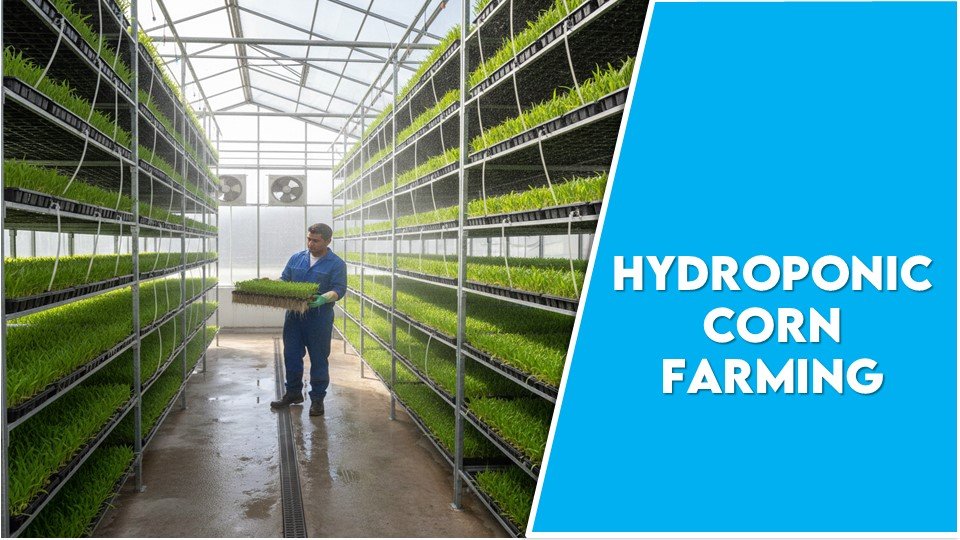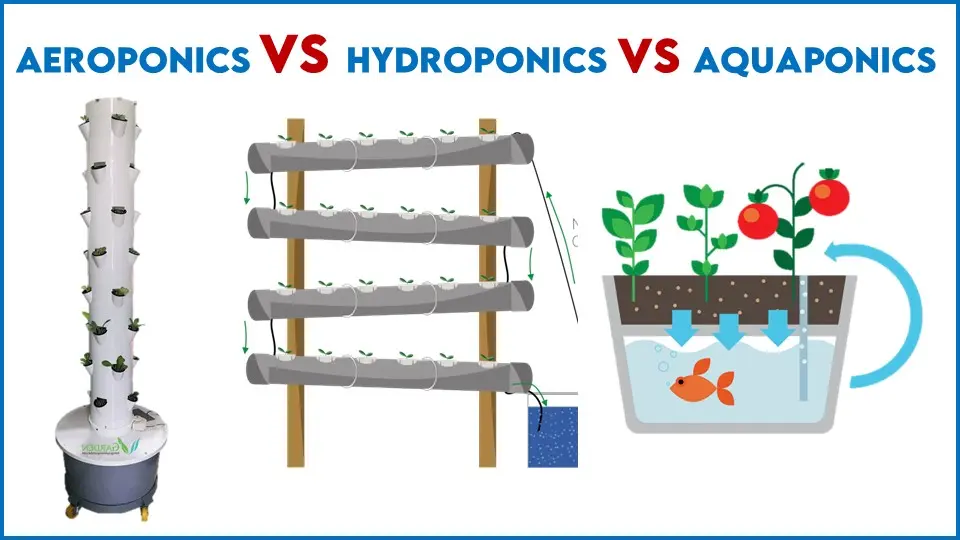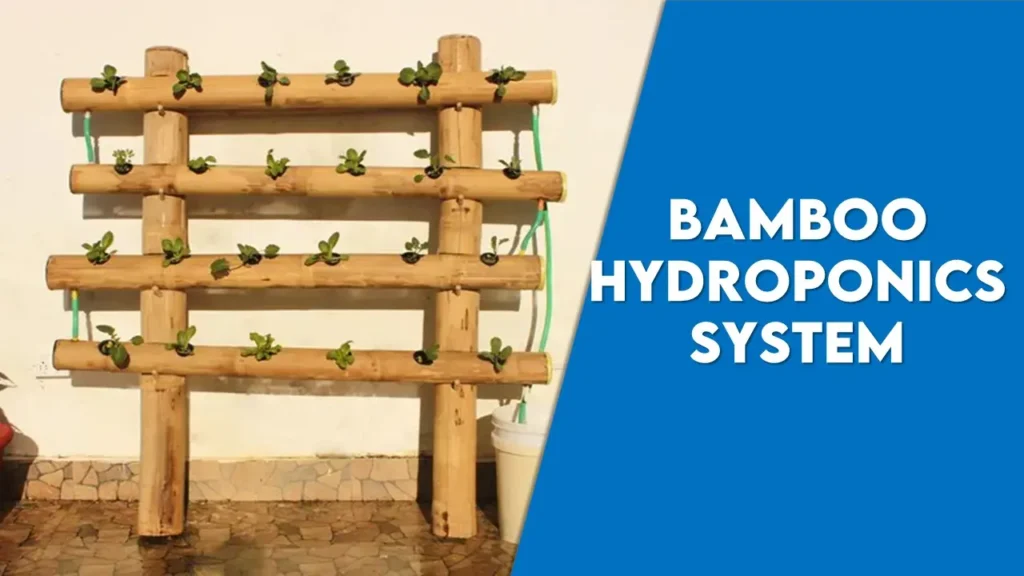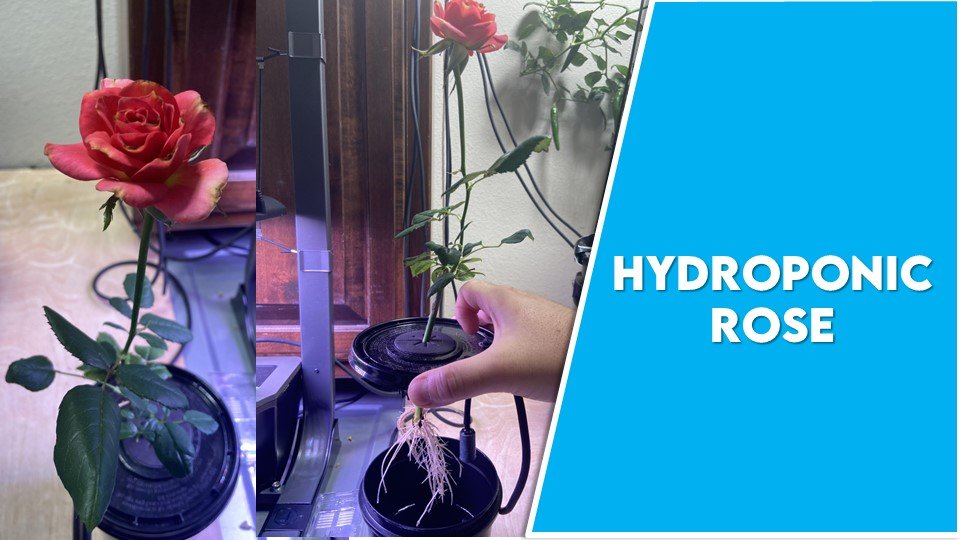Hydroponic Corn Farming : Hydroponic corn fodder?
you might have heard can you grow corn in hydroponics, Yes growing corn hydroponically is Possible. Hydroponic corn farming is one of the most popular crop nowadays, due to its relatively easy cultivation along with a lot of biomass production. Corn or maize (Zea mays) is a tall, annual and important cereal crop of the world associated with the grass family. It is considered as a source of nutrition and many phytochemical compounds like carotenoids, phenolic compounds and phytosterols.
Moreover, due to its versatility, corn can be used as food, fuel and fodder too. An alcohol-soluble prolamine protein- Zein is found in maize endosperm that has novel applications in pharmaceutical and nutraceutical areas. Resistant starch that is obtained from maize helps in reducing the risk of cecal cancer, atherosclerosis, and obesity-related difficulties.
Increase in population and food demand goes hand in hand, therefore with this scenario, maize can assure the food requirements along with plentitude of health benefits.
Firstly, it is one of the most versatile emerging crops with wide adaptability under varied agro- climatic conditions , therefore also known by the name of “Miracle crop” or the “ Queen of Cereals”. Secondly , it is the ideal cereal for green fodder (high energy feed) better than other tropical fodder crops.
Purpose of Raising Hydroponic Corn
Since hydroponics is state of the art technology that has revolutionised green fodder production in the 21st century. Many farmers are already using this technique also known as fodder hydroponic to grow green fodder due to its palatability, digestibility and nutrition. Hydroponic corn is one such example. Others include: ragi, bajra, cowpea, horse gram and sunhemp etc. This will ultimately have a good effect on livestock pertaining to improving fat percentage in milk (Rich in beta- carotene and helps to synthesise vitamin A) that has a substantial effect on reproduction.
Efficient Use of Space
Considering it as a tall plant, it therefore needs extra support in the growing medium to stay straight. In contrast to soil based agriculture, hydroponic corn grows in a medium containing rockwool, coir or perlite that provides support to the plants.
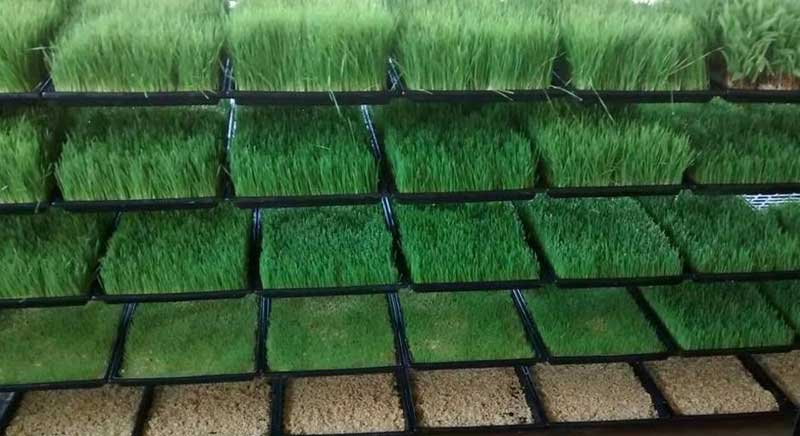
Less Water Wastage
Since the hydroponic system is known for its water efficiency therefore, 98% less water is consumed in raising hydroponic corn, and the water is recycled during the process.
How to Grow Hydroponics Corn
Selection of the Right Variety
Choosing the suitable hydroponic corn variety should be the first and foremost step taken into consideration. This will depend upon the examination of some factors like climate, i.e., corn performs best in climates with long growing seasons. Then, one has to decide what to grow amongst sweet corn or field corn due to differences in their cultivation temperatures. Sweet corn requires a warmer climate and is generally grown as a summer crop with high sugar content and ideal for eating fresh. On the other hand, field corn is more suitable for cooler areas and has low sugar content. It is ordinarily used as an animal feed or for processing into ethanol or starch.
Suggested Hybrids/varieties
| Long Duration | Medium Duration | Short Duration |
| DHM-113 | DHM-111 | Him-129 |
| Bio-9681 | DHM-117 | KH-5991 |
| Nk-30 | Bio-9637 | Prakash |
| Nk-6240 | Kohinoor | MMH-133 |
One can raise the above varieties in a hydroponics system and shorten the harvesting time for profitable farming.
Setting up of System for Hydroponic Corn Farming
Since corn grows in grow bags, vertical spacing should be the first consideration of raising hydroponic corn. Spacing becomes crucial because vertical growing lights are required between the plants. One can grow hydroponic corn in a large container per sapling, the size of which should be three times as large as the sapling’s root ball. The roots of the plants are immersed completely in a liquid plant food that contains all the nutrients that are requisite for the plant.
Lighting Requirements
Hydroponic corn requires a considerable amount of light of about 8 to 12 hours daily since it is grown inside.
Water Requirements
When comes to water requirement of hydroponic corn, it requires a much amount of it in comparison to other crops grown hydroponically, therefore a constant water supply is necessary for a large scale commercial cultivation of hydroponic corn.
Mode of Pollination
Maize is pollinated by wind means it does not depend on insects for pollination. In this, the pollen is transferred by the wind from the tassels to the corn silk at the end of each ear. So, one has to take care of pollination in case of hydroponic corn too.
Containers and Growing Media
The container here indicates the 5-gallon buckets or hydroponic tubs (6 stalks per tub).There are several growth mediums that can be used for hydroponic corn, including expanded clay aggregate, coco coir, rock wool, perlite-vermiculite, etc. Coco coir is considered superior to rock wool due to its moisture retention capability, nutrient control, and oxygenation near the root zone.
Seedling Germination
For the hydroponic corn, seeds should be placed one inch below the medium surface which take time of about 1 week to germinate. Consider taking large amount of seed for planting so you don’t have to replant again in empty spaces.
Nutrient Requirements
Nitrogen should be given in sufficient amounts to grow hydroponic corn i.e. Nitrogen rich nutrient solution is need for the crop from the seed phase to the harvesting phase. Other nutrients like- phosphorus and potassium should be given in moderate amount.
Harvesting of hydroponics corn
Carefully observe the maturity indices of corn and then harvest it. Plants tend to grow 50% faster in a hydroponic system in comparison to corn field conditions. This is due to the supplementary oxygen present in the growth mediums which helps in augmentation of root growth. Hydroponic corn is expected to be harvested in about 2 weeks after the first silk is visible. After harvest, it can be dried and store for later use. It can be eaten fresh or use in various recipes like in cornbread, soup and chilli etc.
Yield
The yield of hydroponic corn tends to be 30% more than the soil based cultivation of corn. The fresh yield of hydroponic maize fodder (HMF) from 1 kg of maize seed is obtained to be approximately 5-6 kg with 12.39% of dry matter in it.
Advantages of Growing Corn Hydroponically
- Increase in the rate of plant growth i.e. by this technique harvesting time has shortened.
- Higher yield obtained in comparison to soil based cultivation of maize.
- By this technique, the loss of water has been greatly reduced which ultimately helps in decreasing pollution that has been caused due to soil run- off.
- Less or negligible usage of pesticides due to lack of necessity, therefore more nutritious crop will be obtained.
Disadvantages of Hydroponic Corn farming
- The main problem lies in nutrient deficiencies, especially calcium deficiency and susceptibility of the plant to pathogens due to much presence of water. It will result in chlorosis of young leaves and, ultimately, necrosis.
- Regular monitoring and maintenance is required for proper growth, in the absence of which crop failure can occur.
- The setup of the system sometimes becomes expensive for a small farmer to install.
- Vulnerability to power cutoffs, since this system depends on electricity and lighting system for growing plants, therefore constant power supply is a necessity.
Conclusion
Maize as a crop does not need any sophisticated technique or materials for its growth which is the reason for its plentiful growth in villages especially but when it comes to urban areas or cities , there is a lack of space due to much urbanization. So, if any person wants to raise maize in that condition, what is the way? Soil- less agriculture or Hydroponics can be the answer.
In this case, hydroponic corn can be grown in less space requiring less input cost and that too in minimal time. The leading-edge solutions that are offered by hydroponics holds the likelihood of producing sustainable agriculture systems that help the farmers to reduce the water wastage and time as compared to traditional methods.
Do You Really Know About Hydroponics? Let’s Play a Quiz!
Think you know everything about hydroponics? It’s time to put your knowledge to the test! Play this interactive quiz and challenge yourself with questions about soil-less farming, nutrient solutions, and the amazing world of hydroponics.
Latest Post
- Difference between Hydroponics Aeroponics and Aquaponic
- Bamboo Hydroponics System: Cutting Edge with Sustainability
- Can you Grow Roses Hydroponically: Hydroponic Rose
- Hydroponic Corn Farming : Hydroponic corn fodder?
Join Our Hydroponics Growers Group!
Connect with fellow hydroponics enthusiasts, share your ideas, ask questions, and grow together as a community.
👉 Join WhatsApp Group
